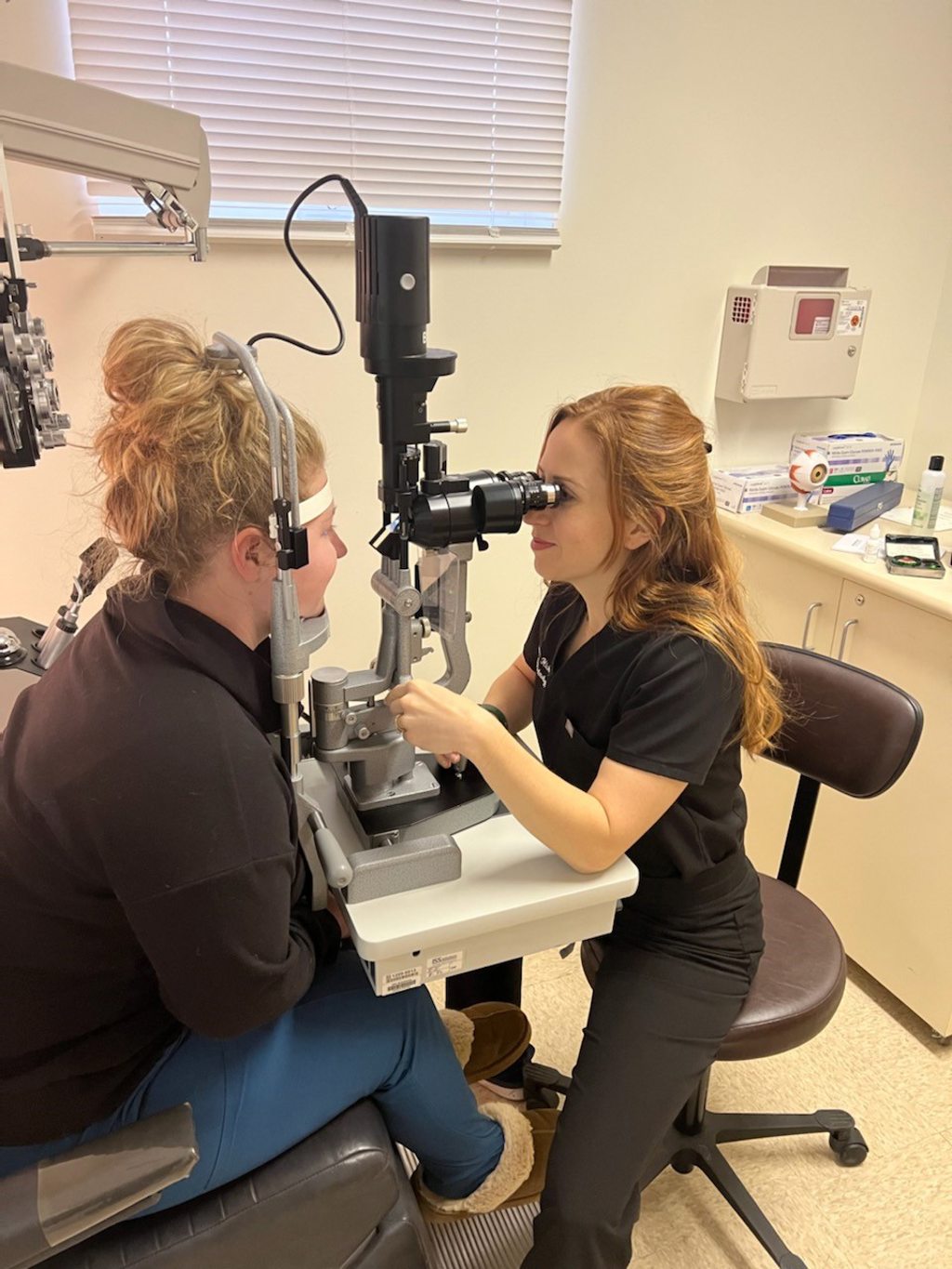See Clearly

Is it harder to see at night? Do you have sensitivity to light or see halos? Is your vision blurry? These can be signs of cataracts or clouding of the lens of the eye.
Cataracts develop when normal aging or an injury causes the proteins and fibers in the eye lens to break down. They may not bother most people until routine daily activities, such as reading, working and driving, become difficult.
“You should never delay treatment of the eyes,” said Michaela Hickey, DO, a board-certified ophthalmologist with Penn Highlands Healthcare. “While cataracts can begin around age 40, most people will not notice any symptoms until after age 60. If they are not treated, total blindness can set in.”
Most cataracts are the result of normal changes in the eye as people age. However, there are many factors that can increase your risk including, diabetes, high blood pressure, obesity, smoking and frequent consumption of alcohol. Heredity, the use of steroids to treat other medical issues as well as a previous eye injury or surgery also can increase the likelihood of cataract development.
If vision problems are affecting your quality of life and you suspect cataracts, your doctor will review your medical history and perform several visual tests and examinations. It is important to note that once they've formed, cataracts cannot be eliminated with medications or eyewear. Surgery is the only corrective option.
Cataract surgery is typically performed under local anesthetic on an outpatient basis. The surgery is relatively safe with the greatest risks being bleeding and infection. Following the procedure, slight discomfort may last for a few days and healing will occur within a few weeks.
According to the American Academy of Ophthalmology (AAO), people may be able to slow the progression of cataracts by protecting their eyes from sunlight. The AAO recommends wearing sunglasses that block the sun’s ultraviolet rays or clear eyeglasses with an anti-UV coating.
Dr. Hickey outlined the following strategies for good eye health.
- Protect your eyes from the sun.
- Add a variety of fruits and vegetables to your diet. Rich in vitamins, minerals and antioxidants, fruits and vegetables are a good source to maintain eye health.
- Monitor your overall health. People who have a family history of health conditions which can lead to cataracts should talk with their eye care professional.
- Quit smoking and limit alcohol consumption.
“One of the best ways to care for the eyes is to have regular eye exams, said Dr. Hickey. “During the exams, doctors can detect cataracts and potential eye problems at the earliest stages.”
Dr. Hickey performs cataract surgery at Penn Highlands Brookville. She is a member of the team at Penn Highlands Eye Center where common treatments and procedures include cataract surgery, eyelid surgery, diabetic eye exams, comprehensive eye exams, glaucoma management, macular degeneration exams and presbyopia treatment.Penn Highlands Eye Care Center has locations in Clearfield, Clarion, DuBois, Huntingdon and St. Marys.
For more information, visit www.phhealthcare.org/service/ophthalmology.
